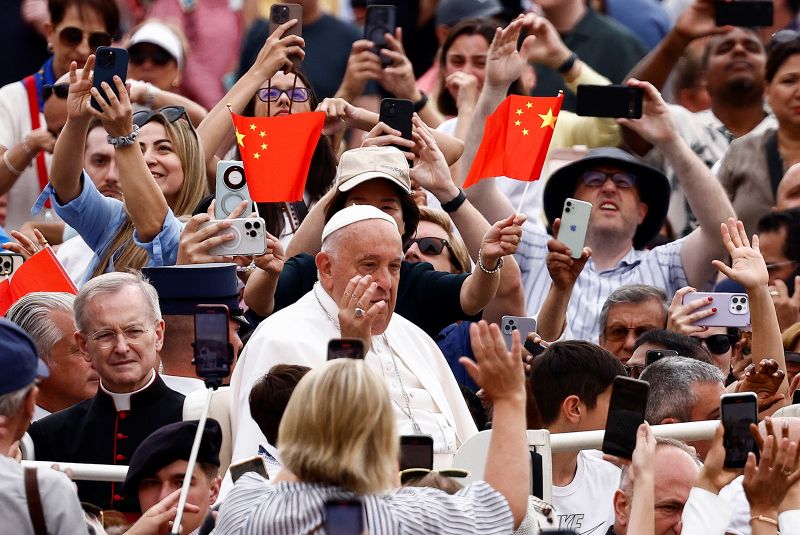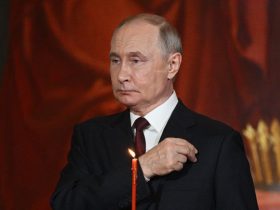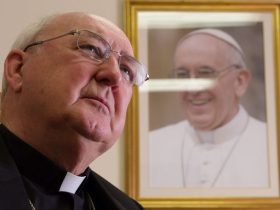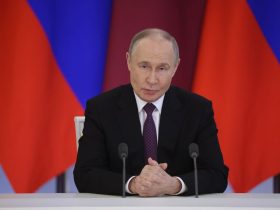As the world rushed to pay tribute to Pope Francis following his death, the response has been comparatively muted in China – an officially atheist state with millions of Catholics whose government has had a difficult and complex relationship with the Vatican.
In the passing of Pope Francis, Beijing loses a well-respected global leader who had pushed the Vatican closer to China’s Communist Party leadership than any of his predecessors.
Nonetheless, Chinese state-controlled media’s coverage on his death has been terse, and more than 20 hours after the Vatican’s announcement of his passing neither Beijing nor China’s own state-sanctioned Catholic Church had issued an official statement.
While condolences from the government are ultimately expected – likely via a foreign ministry spokesperson per precedent – China’s minimalist response underscores the sensitivity of ties between the atheist ruling Communist Party and the Holy See.
The Vatican has not maintained formal diplomatic relations with China since 1951, when the newly established communist regime broke ties and expelled the papal nuncio, the Holy See’s envoy.
Instead, the Vatican remains one of a dwindling number of countries – and the only one in Europe – that recognizes the sovereignty of Taiwan, a self-governing island democracy Beijing claims its own.
Taiwan’s President Lai Ching-te offered “sincerest condolences on behalf of the people of Taiwan” over the Pope’s death soon after the Vatican’s announcement, while the island’s foreign ministry said Taipei would send an envoy to the pontiff’s funeral.
That diplomatic allegiance to Taiwan has remained a sore point for Beijing as it feuded with the Vatican for decades over who gets to appoint Catholic bishops in China. Pope Francis had attempted to address the issue with a landmark – although controversial – deal with the Chinese government as he pushed for better ties.
In China, the ruling Communist Party keeps a tight grip on religion, fearing challenges to its authority, and allows worship only at state-controlled churches.
For decades, China’s state-sanctioned Catholic churches had been run by bishops appointed by Beijing, until the two sides reached an agreement under Pope Francis in 2018. Details of the controversial accord have never been made public and many within China’s underground congregations who have remained loyal to Rome and long faced persecution fear being abandoned.
The deal, which is part of Pope Francis’s vision to expand the Catholic Church’s following across the world, aimed to help the Vatican gain access to potentially millions of converts across China. It was renewed in 2020 and 2022, and in October last year, both sides agreed to extend it for another four years.
But critics have questioned why the church, historically a defender of human rights and Christian values, would willingly join forces with the Chinese government, which under leader Xi Jinping has further curtailed religious freedom. Much of that criticism of the deal has come from within the Catholic Church itself.
The Vatican insists the deal is already paying off and hopes to open a permanent office in China. That has left Catholics in Taiwan wondering what will happen to them should the Vatican ever switch recognition.
Catholicism is one of five state-recognized faiths in China, where religious practice is strictly controlled by the Communist Party, which asserts its supremacy over all aspects of life.
By official count, there are about 6 million Catholics in China, but the number may be higher when counting those who practice at underground churches to avoid Beijing’s watchful eye.
Francis had repeatedly expressed his wish to make a trip to China – a country no pope has ever visited. Chinese Catholics will remember him as the first pope to have ever been authorized to fly over Chinese airspace.
On his way to South Korea in 2014, Pope Frances sent a radio message to Xi when flying over China: “Upon entering Chinese airspace, I extend my best wishes to your excellency and your fellow citizens, and I invoke divine blessings of peace and wellbeing upon the nation.”
In 2023, during his visit to neighboring Mongolia, Francis made a rare move to send a “warm greeting to the noble Chinese people.”
“To the entire people I wish the best, go forward, always progress. And to the Chinese Catholics, I ask you to be good Christians and good citizens,” he said at the end of his Sunday Mass in the Mongolian capital of Ulaanbaatar.






